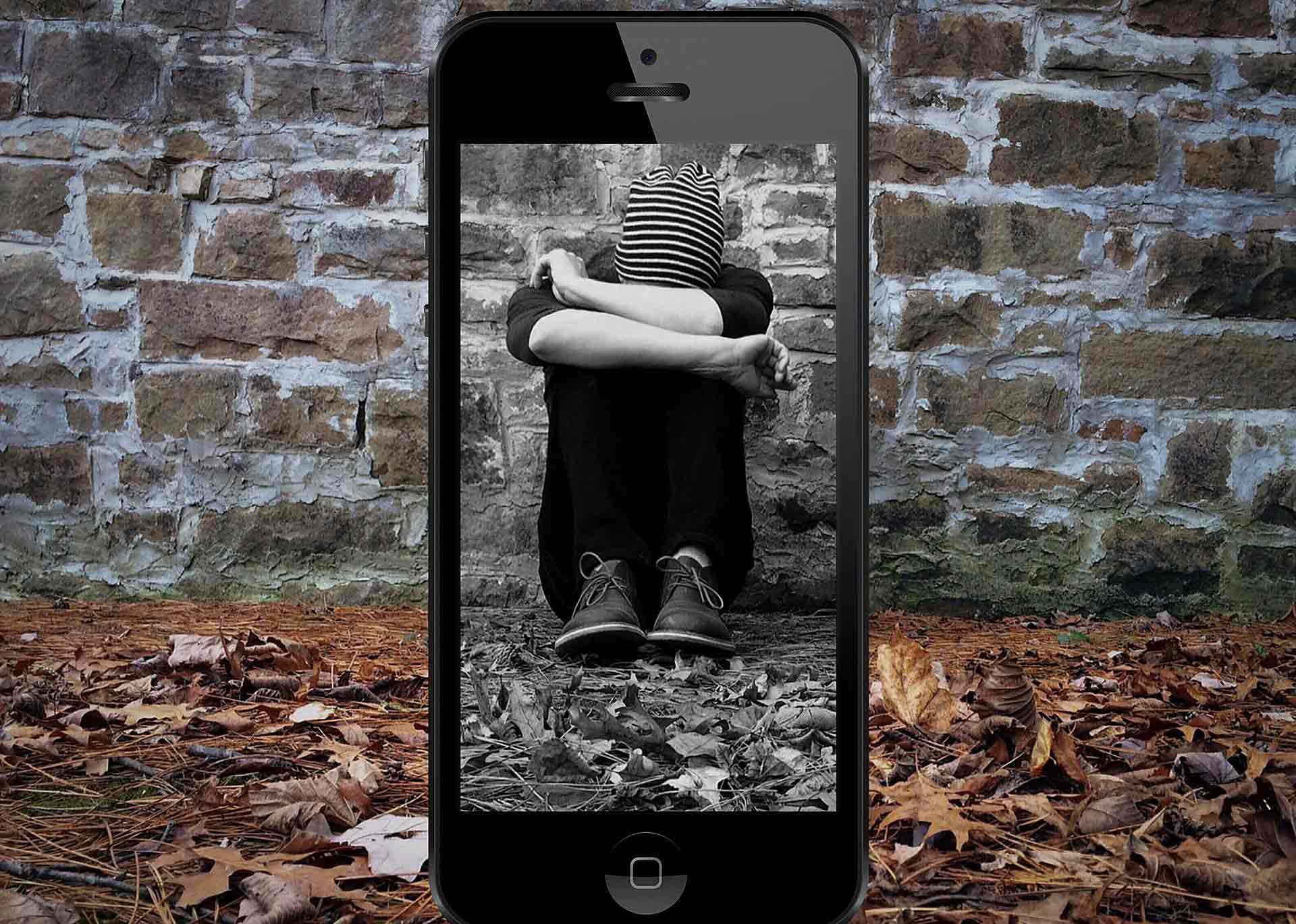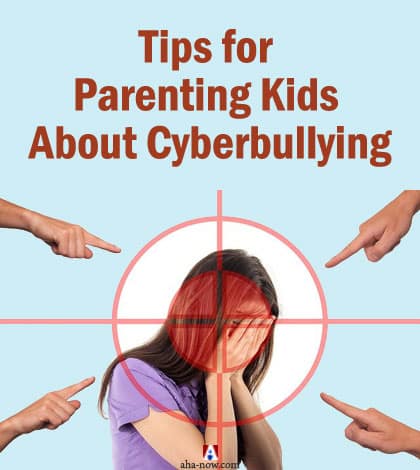Tips for Parenting Kids About Cyberbullying
Teens fall for cyberbullying. Know what it is and how can parents help their kids avoid cyberbullying. After all, it is the responsibility of the parents.

Bullying has always existed. Its online counterpart is cyberbullying, which is more pervasive and dangerous. The victims of cyberbullying are primarily children and teens. Parents can help their children a lot to effectively deal with the menace of cyberbullying. Here are some practical tips for parents to tell and teach their children about cyberbullying. ~ Ed.

With the advancements and expansion in the field of the Internet comes a greater need to act responsibly and protect yourself. Though this applies to anybody, children and teens are most vulnerable in the deep, open, and wide world of the Internet. Undoubtedly, it becomes the responsibility of the parents to prepare their children to deal with all kinds of online experiences and equip them with practical tips to be safe from cyberbullying.
One of the worst online experiences faced by teens is cyberbullying. To give you an idea of the impact of this menacing evil, it has led to instances of teenagers taking their own lives under the pressure of cyberbullying.
Cases of cyberbullying incredibility shot up with the advent of social media. Though cyberbullying existed before social media, the latter has brought up exponential growth in cases of cyberbullying. For perspective, about 54% of kids and teens experience bullying online. The majority of cyberbullying happens on social media platforms.
Let’s understand what cyberbullying is and how parents can help their kids avoid it.
What is Cyberbullying?
Simply put, cyberbullying is bullying that happens online using digital mediums like social media. It can take place on any digital device like a computer, laptop, cell phone, or tablet in the form of images, posts, SMS, text, etc. It aims at harassing, shaming, or threatening a person by spreading lies, sending hurtful messages, posting embarrassing pictures or videos, etc.
Upon being attacked or targeted during cyberbullying, a person may feel mentally upset, emotionally abused, and even experience uncomfortable physical symptoms like sleep loss, headaches, etc. Cyberbullying can take a toll on a person’s mental health.
If children and teens encounter cyberbullying, parents can play an important role in preventing any mishappening and ensuring their kids are not negatively affected. As the adage goes, “prevention is better than cure,” here are some tips for parents to prevent their kids from being victims of cyberbullying.
Things as a Parent to Tell Your Kids About Online Behavior
As a parent, if you want your teens to wisely tackle cyberbullying or avoid being a part of it anyway, you’ve to teach them the basics of online behavior. That includes what should be done and what should not be done, as mentioned below.
Become Role Models
Inform your children that every person who ventures online should be a responsible digital citizen. They should act and behave responsibly as required by the said or unsaid laws of the Internet. While the Internet may seem like an appropriate opportunity to go wild by the power of being anonymous, it is more rewarding to become a gentle person and be a role model for others.
Recognize What’s Right and Wrong
The quote from the Bible, “Do unto others as you would have them do unto you,” is totally apt for online behavior. As a parent, you need to instill this golden rule in your kids – you should not do or say things to others while being online that you would not want others to do to you. This includes cyberbullying, shaming, threatening, making fun of, ridiculing, or other behaviors that would make you feel bad if it were done to you.
Develop Empathy
Teach your kids to be good to others. As in real offline life, one must be kind and considerate in online behavior. Never say, do, or share anything that may hurt others. Your kindness will foster cooperativeness and peace in the online world.
Do Not Respond
As a parent, you must let your children know they should avoid interacting with people who send disturbing, distressful, and hateful content. Such people often get kicks or motivation by the response they elicit from their bad behavior. Kids should resist the urge to respond and not fall into their trap; it’s best to ignore or walk away from such online contacts and incidences.
Avoid Offline Meetings with Online Friends
Tell kids that while the prospects of meeting your online contacts in real life may seem exciting and worth adventuring, they should not entertain such thoughts. As these could lead to misadventures or opportunities for cyberbullying, and they might hurt themselves in the process.
Save the Evidence
Unlike face-to-face offline bullying, cyberbullying leaves a digital footprint. Educate your kids that they can record the evidence and use it to stop cyberbullying. The evidence can be in the form of text messages or screenshots of the post on social media.
Protect Yourself and Your Accounts
This parenting advice is worth gold – Do not share anything online that can be used against you. Think twice whenever you post or share anything on social media. As a rule of thumb, never share your personal details, including the name of your school or any identification that reveals your identity or the place where you live or study. Learn more about the privacy settings on social media and use them to your benefit.
Use Digital Tools
Encourage your kids to use tools like blocking or muting on all social media platforms to stop any user from connecting with them and restrict unwanted people from commenting on or viewing their posts. Most social media also have options to report cyberbullying. This may even lead to temporarily blocking the account used for cyberbullying.
Reach Out for Help
As a parent, tell your kids not to hesitate to report if they’re bullied. Assure them that they can trust you on this, and you’ll be all out there to help them. Tell your kids to confide in their school counselor or their favorite teacher if need be. For sure, they should share their problem with a trusted adult. Educate your children that certain online offenses are unlawful. If reported, the police can get involved, and the bullies may be liable for punishments.
Conclusion
It is the responsibility of the parents to help their children understand the proper online behavior and stop cyberbullying. Parents need to instill the values of decency, empathy, and kindness in the kids for exemplary online behavior.
With complete information and knowledge of the do’s and don’ts of online behavior, children and teens are more likely to recognize and stay out of cyberbullying episodes. A favorable rapport with the parents would also help them to be able to deal with cyberbullying effectively.
Not only protecting themselves, but you should also teach your kids to help fellow friends to ward off cyberbullying. If they notice such demeaning behavior online, it is best to report it to the authorities. This act would allow the Internet to become a better place for all. If this is not possible, victims of cyberbullying should be supported. Your actions or words will make a big difference to them.
Over to you –
Have you ever been a victim of cyberbullying? As parents, how did you prepare your child to face and deal with cyberbullying? Share your experiences and tips in the comments below.

 BigThink
BigThink 































.jpg&h=630&w=1200&q=100&v=154b70b92d&c=1)